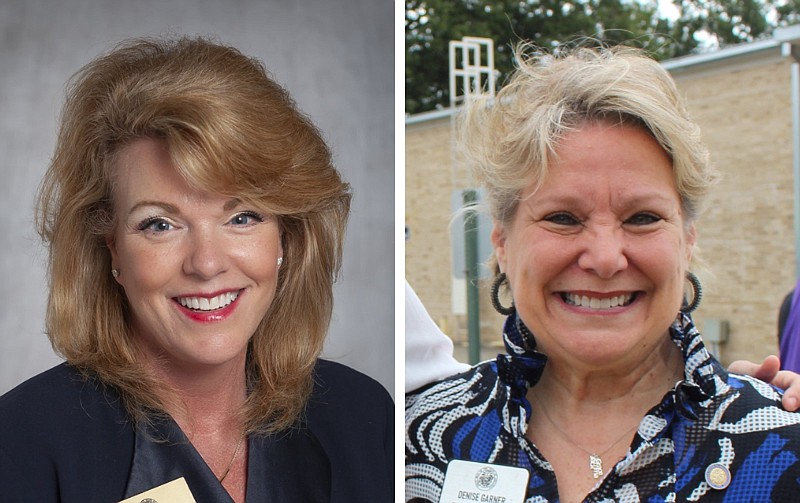Arkansas urgently needs more early childhood care and education capacity, both to improve academic performance and to fill a pressing practical need for both parents and their employers, lawmakers said at a Fayetteville Chamber of Commerce legislative forum on Friday.
Child care industry figures show 51% of U.S. parents spend 20% or more of their income on child care. The figure does not include those who stay home rather than work because of the cost of care. Child care centers closed or suffered a large number of workers leaving during the covid-19 pandemic and have never fully recovered, said Fayetteville Chamber president Steve Clark at Friday’s forum. The shortage remains a serious choke point in the labor supply, he said.
The chamber hosted Reps. Robin Lundstrum, R-Elm Springs, and Denise Garner, D-Fayetteville, at the first in a series of “Face to Face with Your Legislators” events at 4 p.m. on Fridays. The event took place at the chamber’s “Fab Lab” Innovation Center in Fayetteville.
Fayetteville city government announced it will draw $2 million from its $17.9 million remaining balance of federal American Rescue Plan money to cover a year’s worth of child care costs for low-income families to help meet the need. The original proposal to release $500,000 in December drew 100 applications and requests for 200 more applications.
Lawmakers will take a hard look at the requirements on small, home-based child care, Lundstrum said. Requirements such as commercial-grade ventilators for kitchens and for sprinkler systems for fire prevention put the costs of opening a center too far out of reach, she said. Lawmakers will also look at regulations restricting such centers — including local zoning restrictions for residential areas. This could spur resistance from cities, Lund-strum and Garner noted.
“They’re for local control until they’re not” is a frequent criticism of the Legislature, Garner acknowledged, but the child care shortage is serious.
